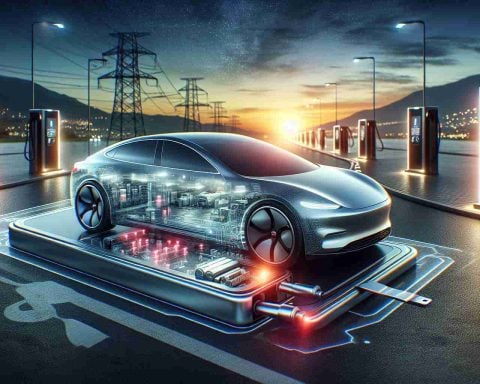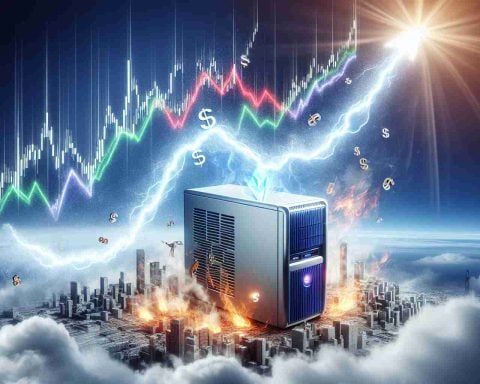- Hyundai is temporarily halting production of the Ioniq 5 and Kona EV due to a significant drop in demand.
- The pause affects the Ulsan plant and will last from February 24 to 28.
- Only 75 units of the Ioniq 5 were sold in South Korea in January, indicating a broader decline in electric vehicle demand.
- Hyundai is introducing incentives of 1 to 3 million won (around $900 to $2,700) to stimulate interest in EVs.
- The situation reflects ongoing challenges in the automotive industry, exacerbated by subsidy cuts in local markets.
- Hyundai is ramping up EV production in the U.S. to counteract the declining domestic orders.
In a surprising turn, Hyundai has announced a temporary halt in the production of its flagship electric vehicles, the Ioniq 5 and Kona EV, in South Korea. This decision, prompted by a significant drop in demand, focuses on the company’s Ulsan plant, where production lines will pause from February 24 to 28.
With the Ioniq 5 selling a mere 75 units domestically in January—far below expectations—hyundai faced mounting pressure to reassess its output. The lackluster sales reflect a broader trend, revealing concerns about the slowing demand for electric vehicles both in South Korea and worldwide.
As Hyundai navigates this rocky terrain, the automaker is also adjusting its strategy to remain competitive. The impact of decreasing orders has resulted in their factory operating without cars to assemble, showcasing the challenging landscape for EV manufacturers. In a bid to reverse the downturn, Hyundai is rolling out incentives ranging from 1 million to 3 million won (approximately $900 to $2,700) to stimulate interest.
This pause serves as a stark reminder of the volatility in the automotive industry, especially with recent subsidy cuts affecting local markets. As Hyundai ramps up its electric vehicle production in the U.S. to offset declining orders at home, analysts wonder if these efforts will drive demand back up.
Key takeaway: Hyundai’s production halt highlights a critical moment for the electric vehicle market, underscoring the need for manufacturers to adapt quickly to shifting consumer preferences.
Shocking Shift in Electric Vehicle Production: What Does It Mean for Hyundai and the EV Market?
## Hyundai Pauses Production of Ioniq 5 and Kona EV Amidst Demand Crisis
In a startling development, Hyundai has temporarily halted the production of its Ioniq 5 and Kona EV models at its Ulsan plant in South Korea due to a dramatic decline in demand. This pause from February 24 to 28 comes in light of the Ioniq 5 achieving a mere 75 units sold domestically in January, flagging concerns about the broader electric vehicle (EV) market.
Recent Insights and Trends in the EV Market
1. Changing Consumer Behavior: The recent slump in EV sales isn’t limited to Hyundai; many manufacturers are experiencing shifts in consumer interest. Factors influencing this include rising fuel prices, lingering supply chain issues, and the increasing cost of living. This trend suggests a potential saturation of the market as early adopters now consider alternatives.
2. Pricing Pressures: To combat declining sales, Hyundai has announced incentives ranging from 1 million to 3 million won (about $900 to $2,700). Such promotions aim to attract buyers but also highlight pressures from competitors and the need to offer attractive pricing models.
3. Market Forecast: Analysts predict that the EV market could experience a resurgence if economic conditions stabilize and consumer confidence returns. Innovations in battery technology and increased charging infrastructure may also drive future sales.
Three Key Questions Answered
1. Why is demand for electric vehicles declining?
Demand is affected by a mix of market saturation, economic conditions, and rising living costs. Consumers are weighing options more carefully against their budgets, leading to decreased purchases of EVs.
2. How is Hyundai responding to this production halt?
Hyundai is actively seeking to stimulate sales through financial incentives and is increasing production capacity in markets like the U.S. This strategic pivot aims to align with shifting market dynamics.
3. What does this mean for the future of electric vehicles?
The temporary halt highlights the volatility within the EV industry, indicating that manufacturers must remain agile in responding to changing consumer demands and market conditions. The sector could bounce back, heavily influenced by technological advancements and policy support.
Conclusion
Hyundai’s temporary suspension of Ioniq 5 and Kona EV production serves as a poignant reminder of the challenges Auto manufacturers face in the dynamic landscape of electric vehicles. As the industry adaptively responds to shifting demands, the focus will be on innovation and strategic pricing to ensure sustained growth.
For more information on Hyundai and its latest offerings, visit Hyundai’s official website.

















